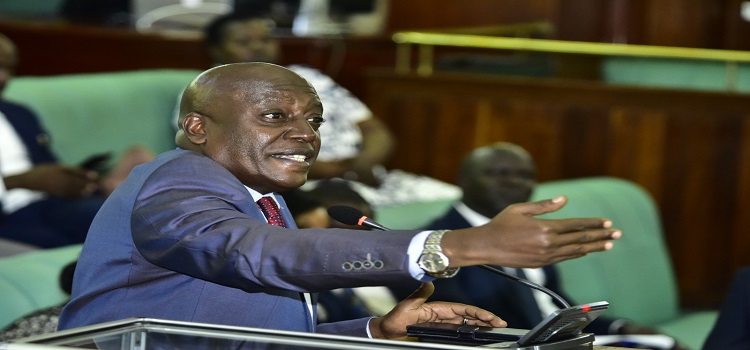In a plea to the government, Joseph Ssewungu, the Kalungu West Member of Parliament on Wednesday raised concerns over a new directive requiring couples to present national Identity Cards Ds before conducting marriage ceremonies.
Ssewungu has challenged the rationale behind this directive, questioning its impact on Uganda’s diverse religious and cultural traditions.
During a parliamentary session, Ssewungu, a devout Catholic, expressed his dismay, saying, “Yesterday, we saw the government direct that they aren’t going to legalize any marriage unless you have a National Identity Card. But our beliefs are different. For example, a Catholic like me—I was baptized, I went for my confirmation. In our constituencies, people are going through customary marriages, and they don’t require anything like that.”
He tasked the Government to explain to the country the mischief it intends to cure with its latest directive because it contradicts beliefs in different faiths like the Catholic Church that require baptism and a confirmation card for a marriage to be performed.
Ssewungu’s frustration is not just rooted in faith but also in practicality. He pointed out that many Ugandans’ national IDs are close to expiration, and yet, their NINs (National Identification Numbers) remain valid. “Why do you want me, Ssewungu, a Catholic who was baptized, to first have a national ID before you register my marriage?” he questioned, urging the government to clarify the issue.
“So we want the Minister to come here and explain, what they intend to cure because already, most of our national IDs are about to expire but they have our NINs which somehow make them legitimate,” Ssewungu added.
The controversy stems from Statutory Instrument Number 74 of 2024, which was issued on September 5 and took effect on September 30. The instrument, signed by Minister of Internal Affairs Kahinda Otafire, officially transferred the responsibility for marriage registration to the National Identification Registration Authority (NIRA).
This move follows a cabinet directive aimed at streamlining government agencies and consolidating the registration of all natural persons including births, marriages, and deaths under NIRA’s jurisdiction.
In defence of the government, David Bahati, the Minister of State for Industries, requested time to allow the Ministry in charge to make a statement, assuring MPs that clarification would be provided soon.
Nevertheless, Ssewungu’s concerns highlight a broader debate on the intersection of government regulations and religious practices. Many communities, especially those following Catholic, Anglican, and customary traditions, may feel the new requirement contradicts long-standing marriage procedures.
For Catholics like Ssewungu, where baptism and confirmation serve as key rites of passage, the imposition of a national ID as a prerequisite for marriage raises questions about the government’s understanding of these religious practices.
As the directive unfolds, the government will need to address concerns like Ssewungu’s, ensuring that the new requirements do not infringe upon citizens’ rights to follow their religious or cultural beliefs in matters as personal as marriage.
Do you have a story in your community or an opinion to share with us: Email us at editorial@watchdoguganda.com













